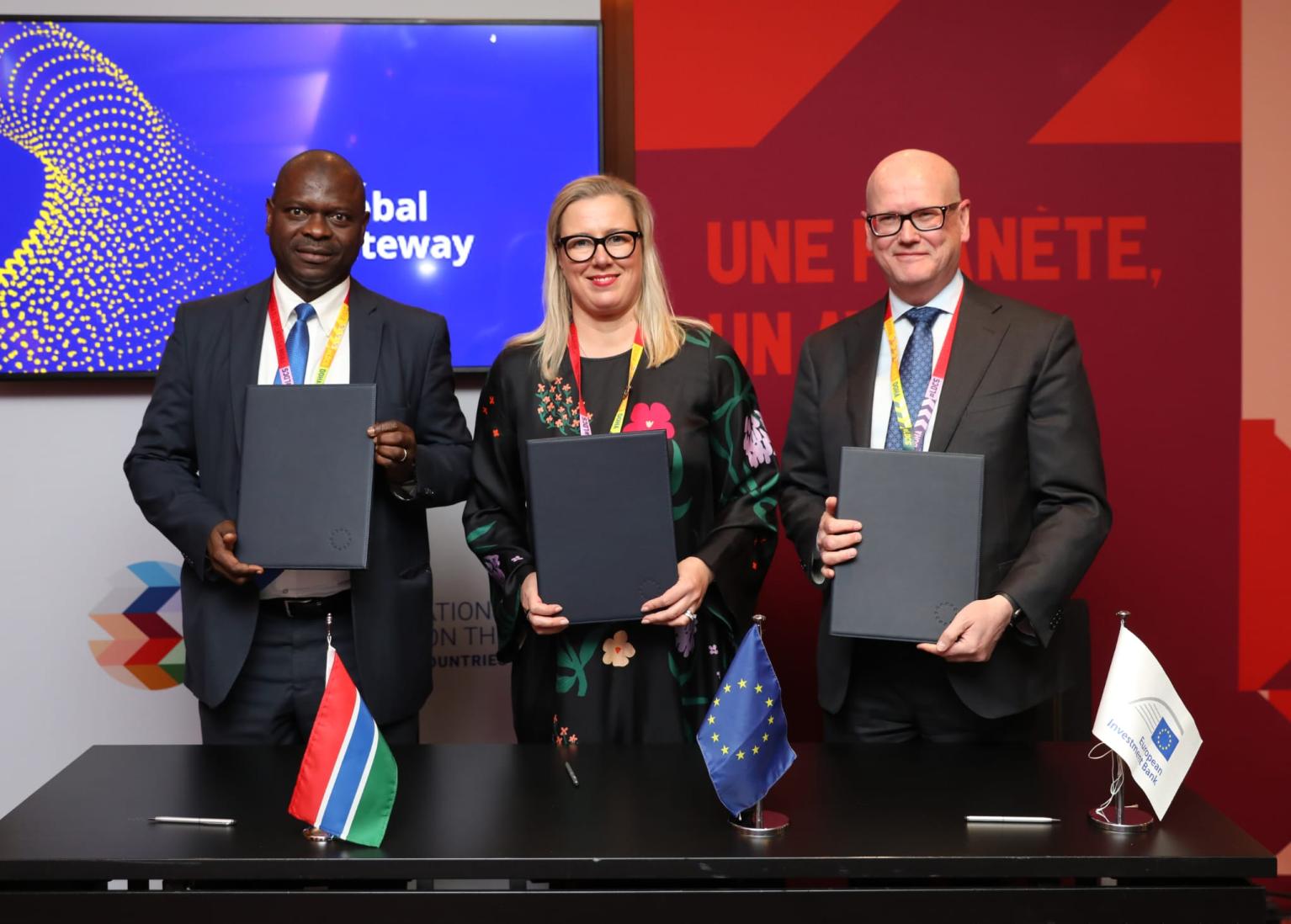The Republic of The Gambia, the European Union (EU), and the European Investment Bank (EIB) have jointly announced a new grant agreement at the United Nations (UN) 5th Conference for Least Developed Countries (LDC5). The grant of €24.08 million from the EU Global Gateway, coupled with an €8 million loan from the EIB, will support the implementation of a renewable energy program for on and off-grid generation, transmission, and distribution throughout The Gambia. The total financial backing for the project from the EU and EIB now exceeds €100 million.
The Statement of Signature for this grant agreement was signed by Jutta Urpilainen, EU Commissioner for International Partnerships, Seedy Keita, Minister of Finance and Economic Affairs of the Republic of The Gambia, and Thomas Östros, EIB Vice-President. In expressing his gratitude, Minister Keita acknowledged that the project will transform The Gambia’s electricity sector by solarizing up to 1000 schools and 100 health facilities, particularly in remote areas of the country. The project will also provide reliable and clean energy to the education and health sectors, helping to reduce The Gambia’s carbon footprint. The goal is to achieve universal access to electricity for all Gambians by 2025. The EU and EIB have demonstrated themselves as strong development partners for The Gambia through this initiative.
European Commissioner for International Partnerships Jutta Urpilainen said: “Affordable, reliable and sustainable access to electricity for all is a Global Gateway priority. It increases strategic autonomy, and without electricity communities cannot benefit from new technologies in full. I am delighted to sign this €24 million grant agreement for solar panels to power up schools and health centres in the Gambia. This flagship green energy project is a fantastic win-win for climate action and human development, for empowering young people and for creating more economic opportunities across the country.”
“Investment in Gambia’s energy infrastructure is essential to improve economic opportunities as well as better daily lives. The EIB welcomes in particular the additional Team Europe grant support in cooperation with Gambian, international and European partners. Together, this scheme will enable the Gambia to be the first country in Africa to provide renewable energy electrification for all public school and health facilities.” said EIB Vice-President Thomas Östros. He added: “It is a flagship and impactful project supported by EIB Global, our new branch dedicated to development and international partnerships outside the EU. We are strongly committed to support climate action in Africa and around the world.”
The project will transform electricity access in rural communities across the country and ensure that education and health services benefit from reliable and clean power. More than 1,000 schools and 100 health centres in rural parts of the Gambia that currently have limited electricity access are expected benefit from reliable energy supply through new connections to the national energy network and provision of off-grid solar and battery systems.
Once operational, the Gambia Renewable Energy project will increase energy supply in the Gambia by one fifth. In addition to increasing access to electricity in rural communities, it supports the construction of a new photovoltaic plant at Jambur near Banjul, and reinforcement of power transmission and distribution infrastructure.
This project is also supported by the World Bank.
Over the last decade the European Investment Bank has provided €5.3 billion for energy investment across Africa.

